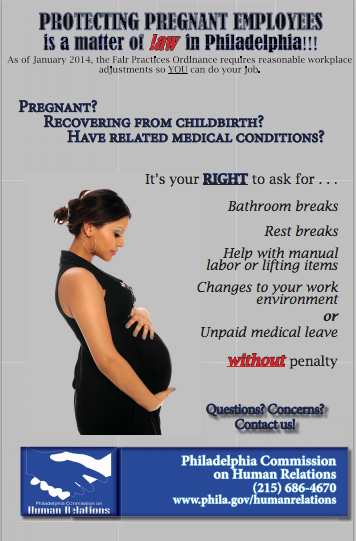Search
This employer had a “no pregnancy in the workplace” policy. No, really. It did.
Holy crap. Literally.
A Texas church is now about $75,000 lighter in the wallet after a federal judge determined that having and enforcing a “no pregnancy in the workplace policy,” which prohibited the continued employment of any employee who became pregnant, violates Title VII of the Civil Rights Act of 1964. That’s the law that prohibits discrimination based on pregnancy. Yeah, it says it right there.
Here’s more on the decision from the EEOC’s press release.
 The Employer Handbook Blog
The Employer Handbook Blog




